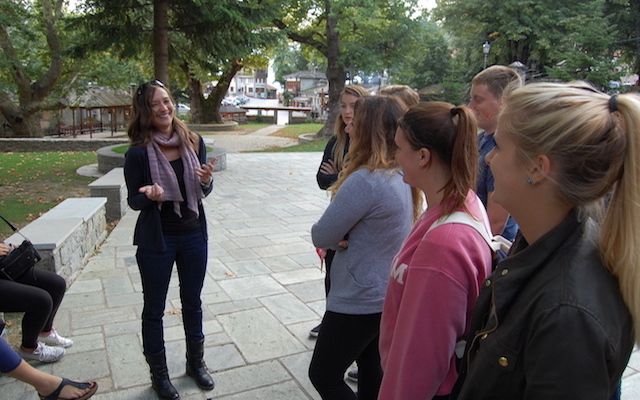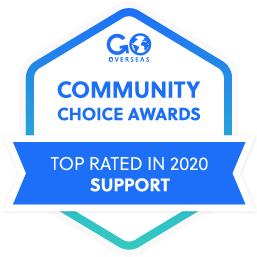
Understanding society
By AIMEE PLACAS*
Learning and living these other world views, other logics, makes clear that the life they live back home is only one possible way to be in the world, one of many.
“Anthropology makes the familiar strange, and the strange familiar.” Anthropologists love to put this quote in their textbooks, preparing students for the double effect of the discipline: when you study cultures that are different from your own, you necessarily end up seeing your own worldview in a new light. This new perspective is not just a side effect, but a purposeful endeavor, as one’s sense of what’s “natural,” “logical,” and “common- sense” in the world has to be challenged on the way to realizing that there are many different ways to be a human being.
This is exactly what study abroad is about too, the idea behind the “broadened horizons” and “new perspectives” that a semester away is meant to create. And thus teaching anthropology to study abroad students is a joy—they’re all proto-anthropologists, even if they don’t know it yet. Understanding this society they’ve chosen to make their temporary home is their fieldwork, their focus from the moment they arrive. Through my class I get to direct that fieldwork, to send them places they wouldn’t otherwise go, and to give them analytical tools to explore the why and how behind what they participate in and observe.
Every moment of frustration or surprise is an opportunity to explore their own unexcavated preconceptions, expectations, and prejudices. Their own cultural patterns of thought are laid bare as they make Greece familiar to them—exploring the meanings of friendship through interviewing Greek college students; breaking down the riot of noise, song, and ritual at a football game; engaging with the full-sensory experience of a Greek Orthodox liturgy; turning the strangeness of their neighborhood into a network of acquaintances and friends.
Learning and living these other world views, other logics, makes clear that the life they live back home is only one possible way to be in the world, one of many. Watching that understanding develop in the classroom is amazing, but even better are the emails I receive from former students, about how the ideas and practices they took home with them continue to be a major part of their lives.
* Aimee Placas holds a PhD in Anthropology from Rice University. She has presented and published on issues related to the anthropology of money, consumerism, kinship, gender and sexuality, and Europeanization. She’s currently writing a book on the story of consumer credit’s emergence in Greece over the past 15 years, from the first credit cards to the first personal bankruptcies. She is also conducting a new research project on the lives of individuals in Greece who have passed through bankruptcy during the financial crisis.





